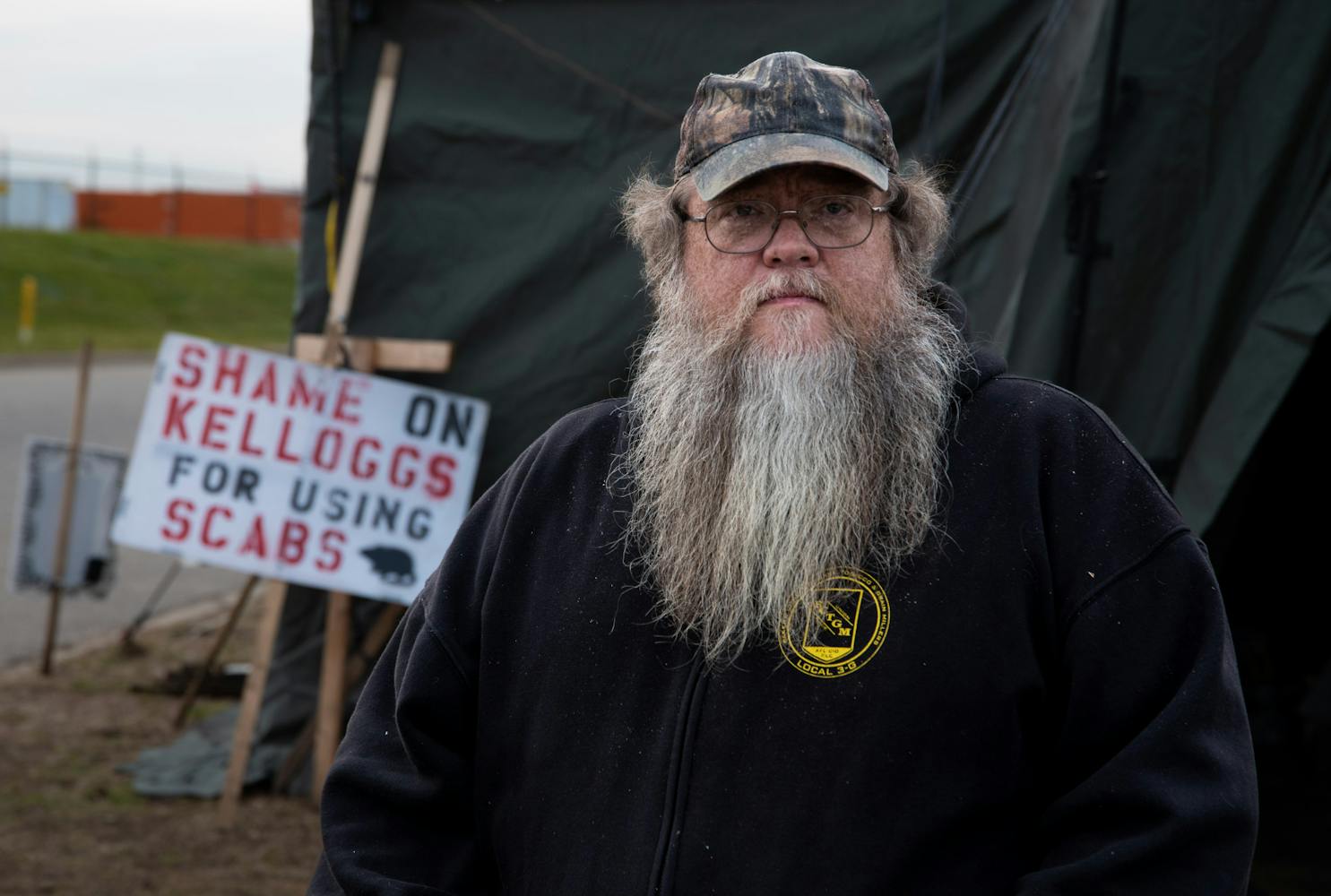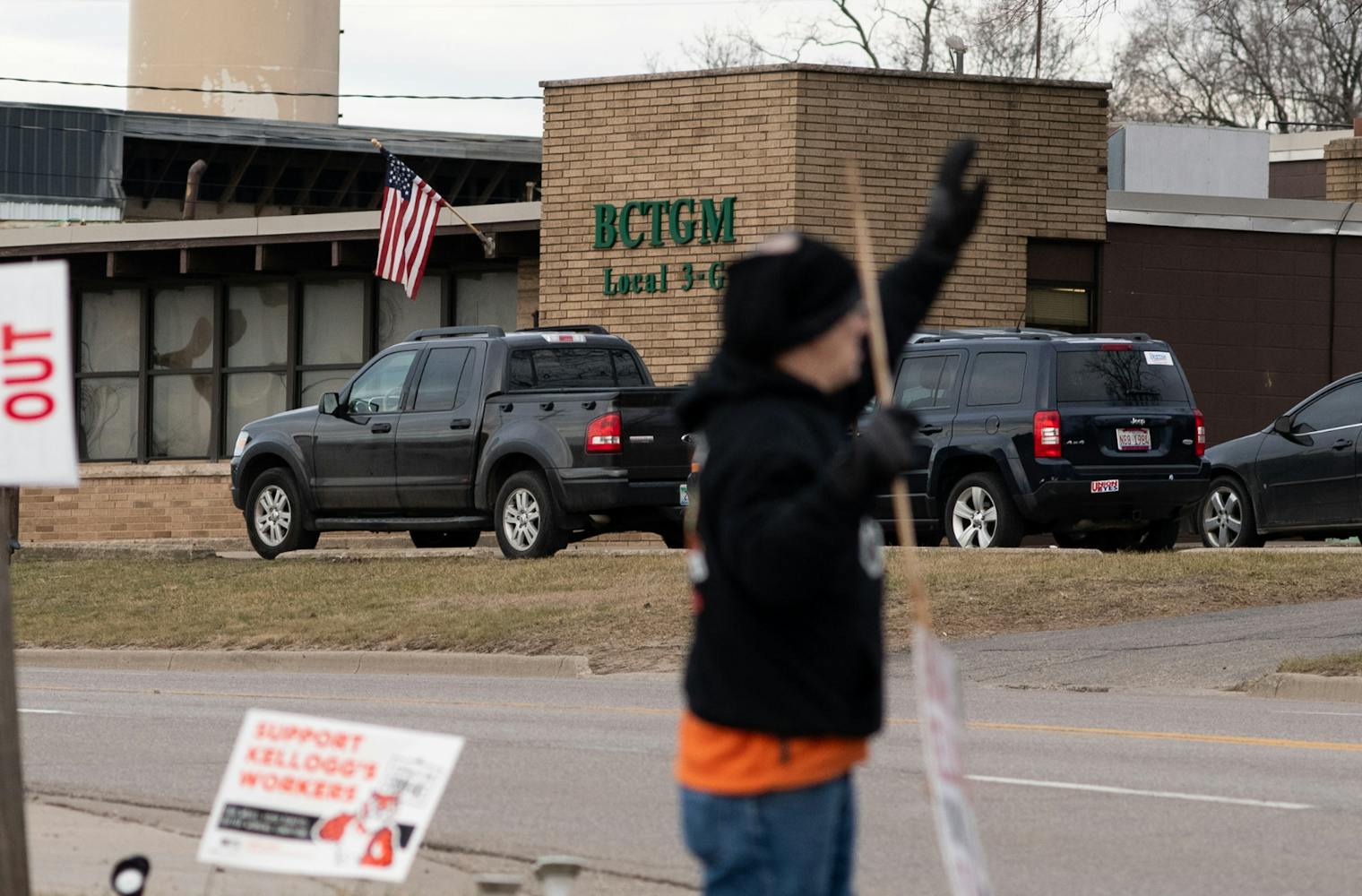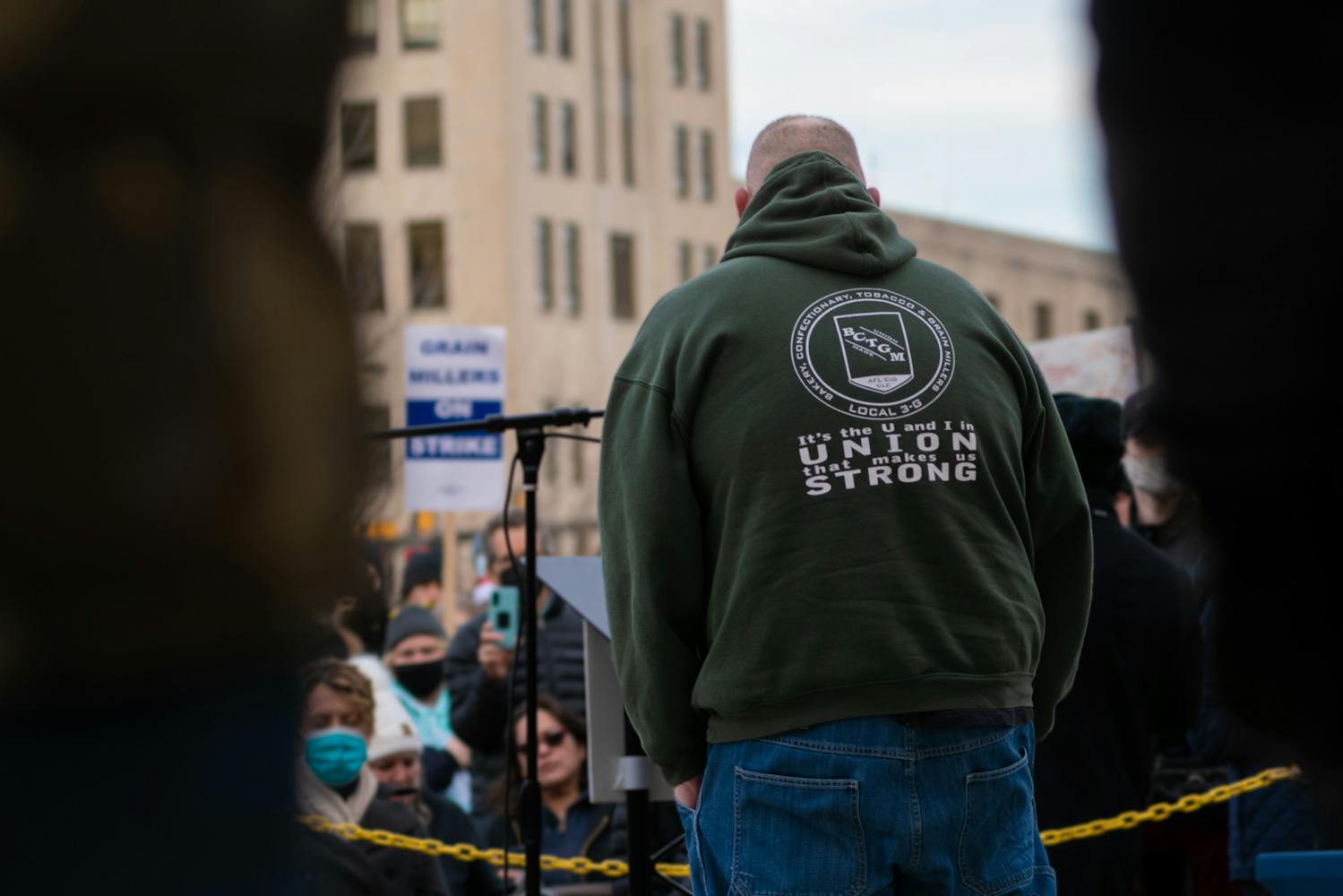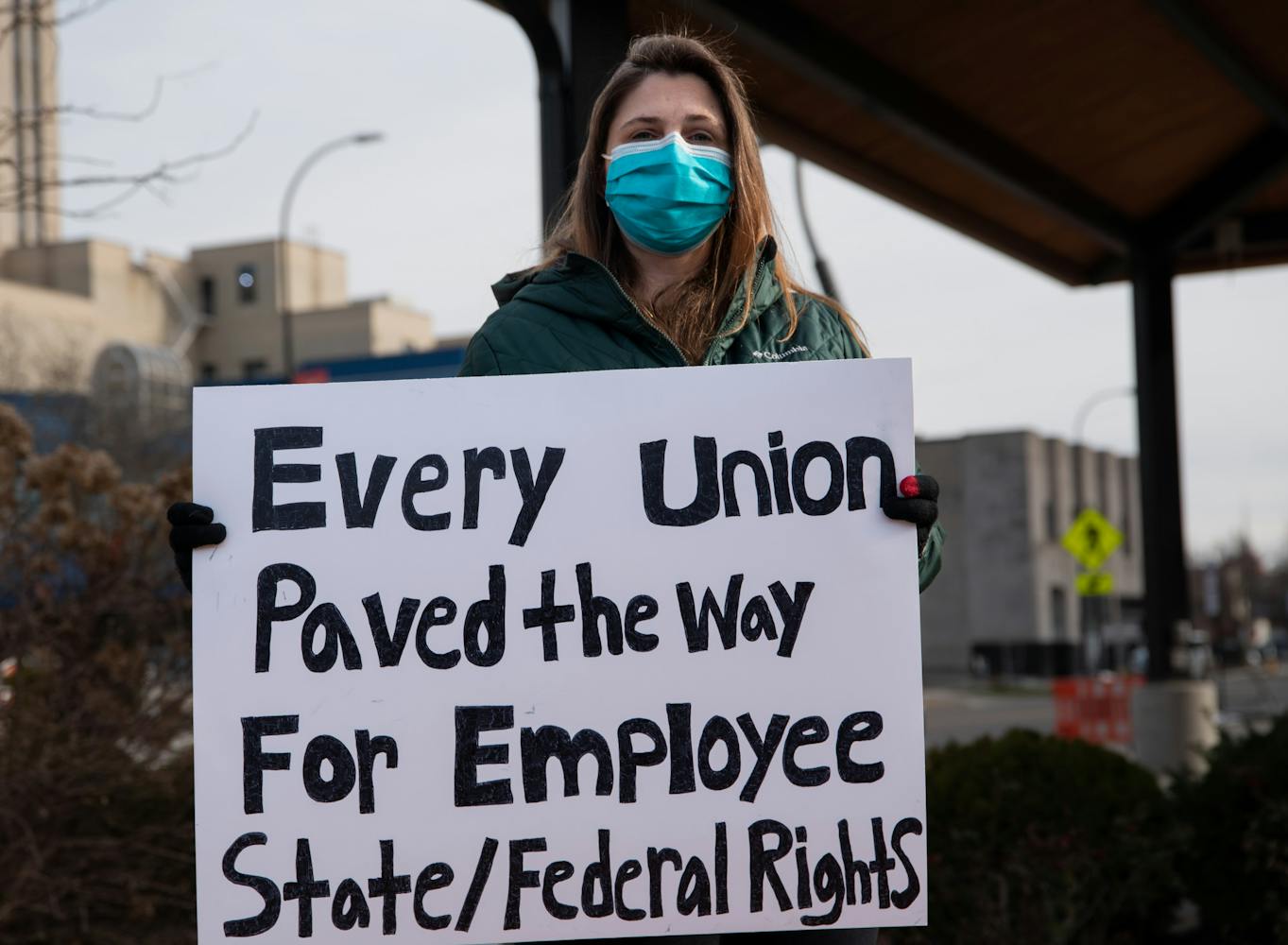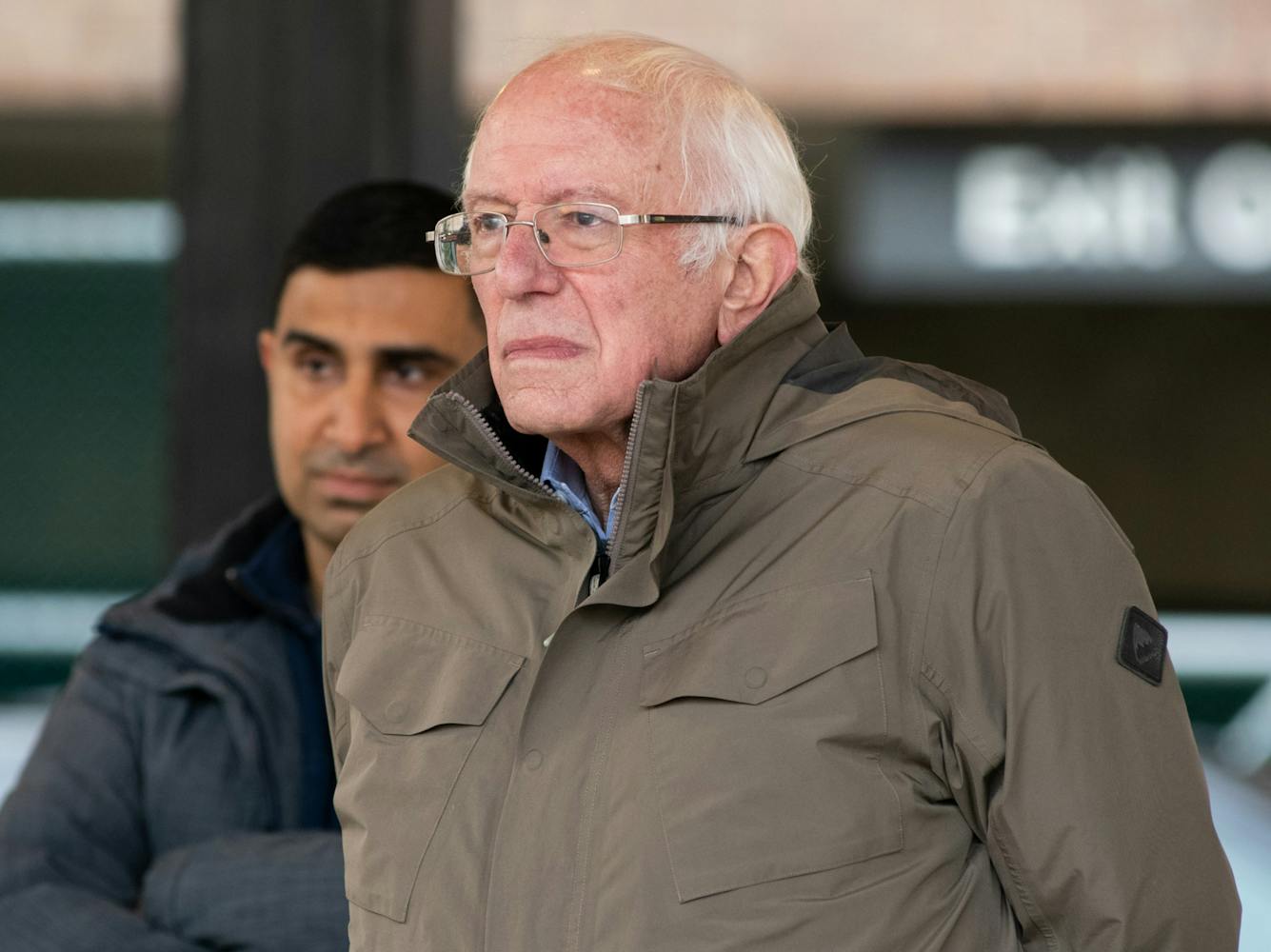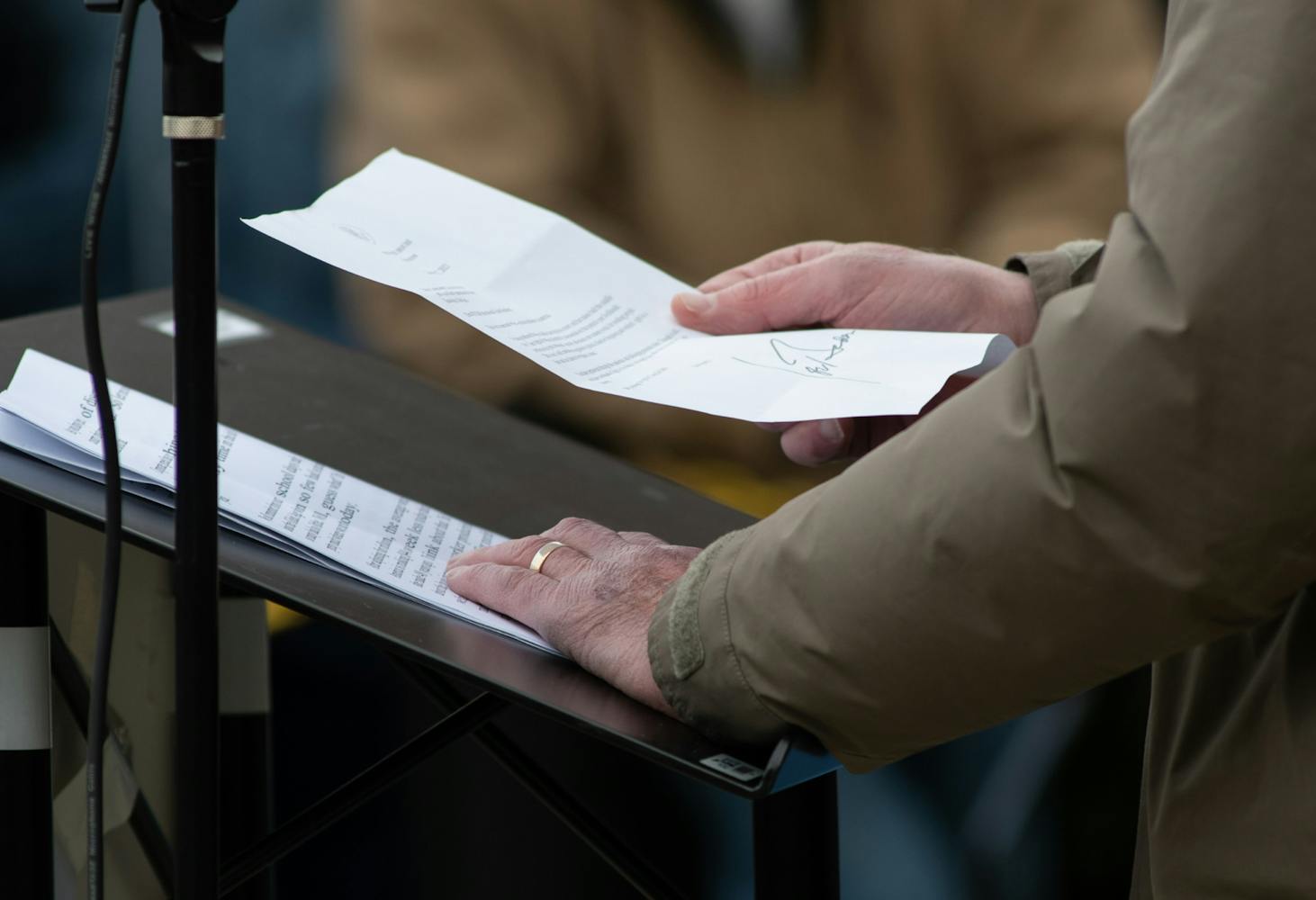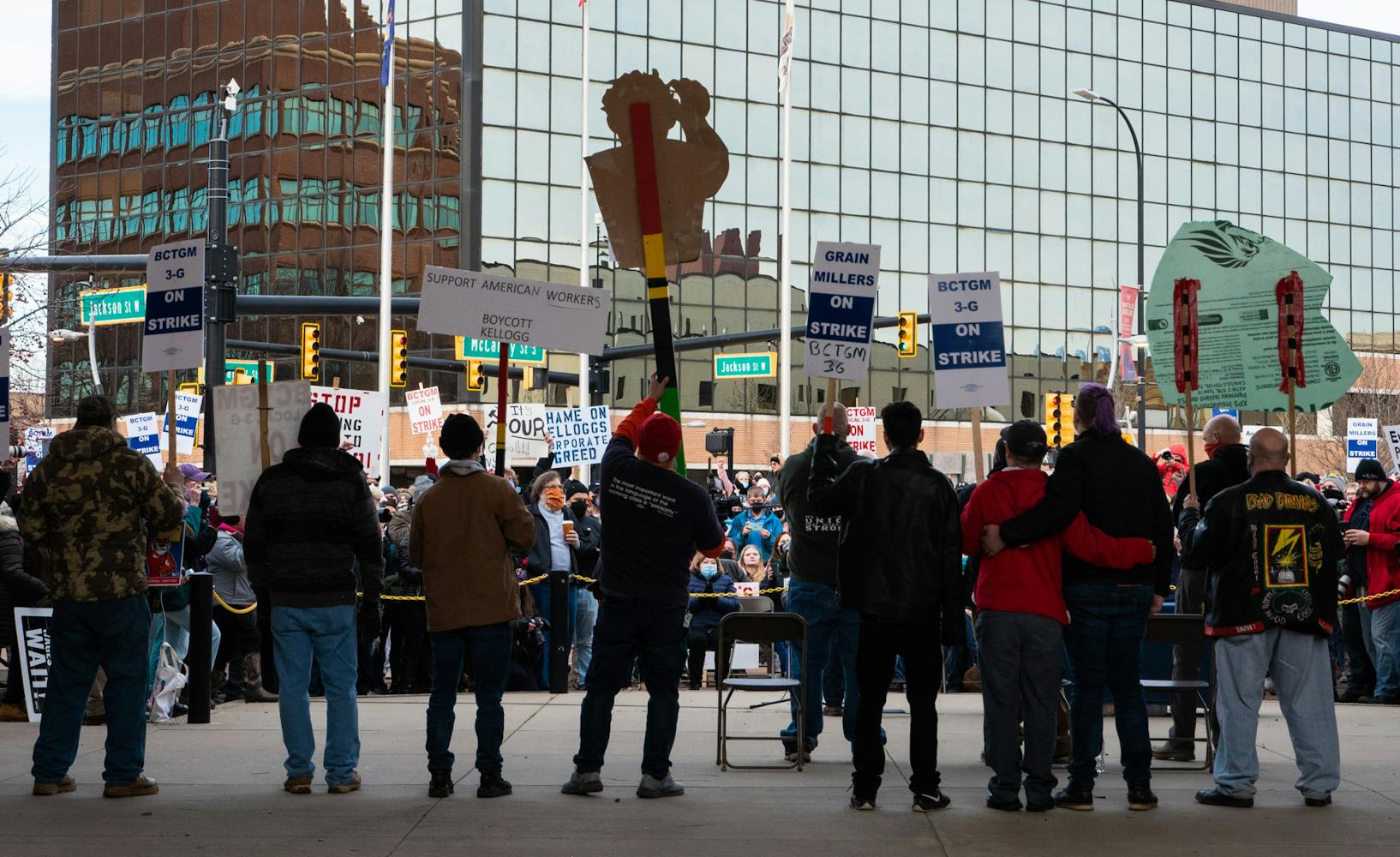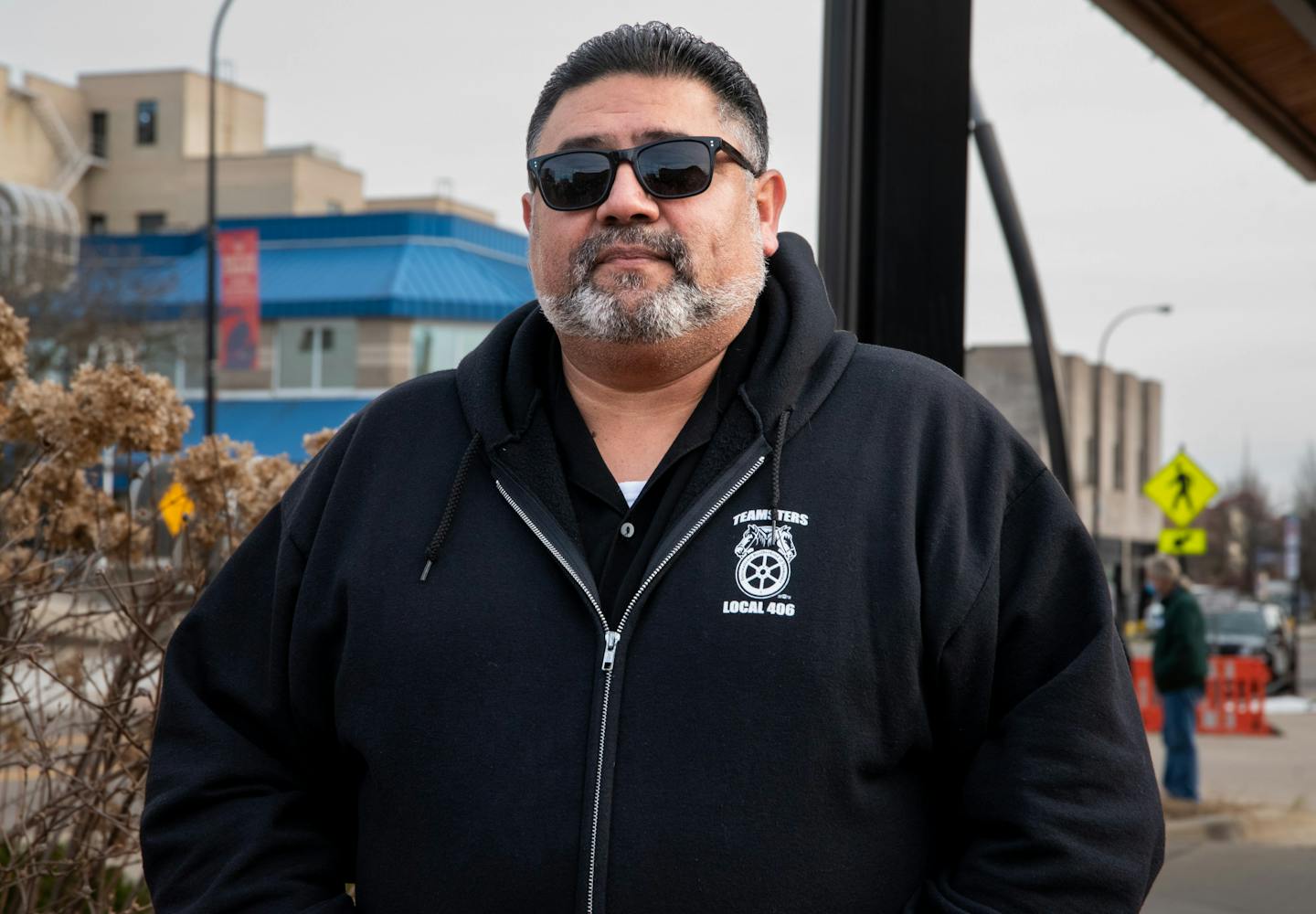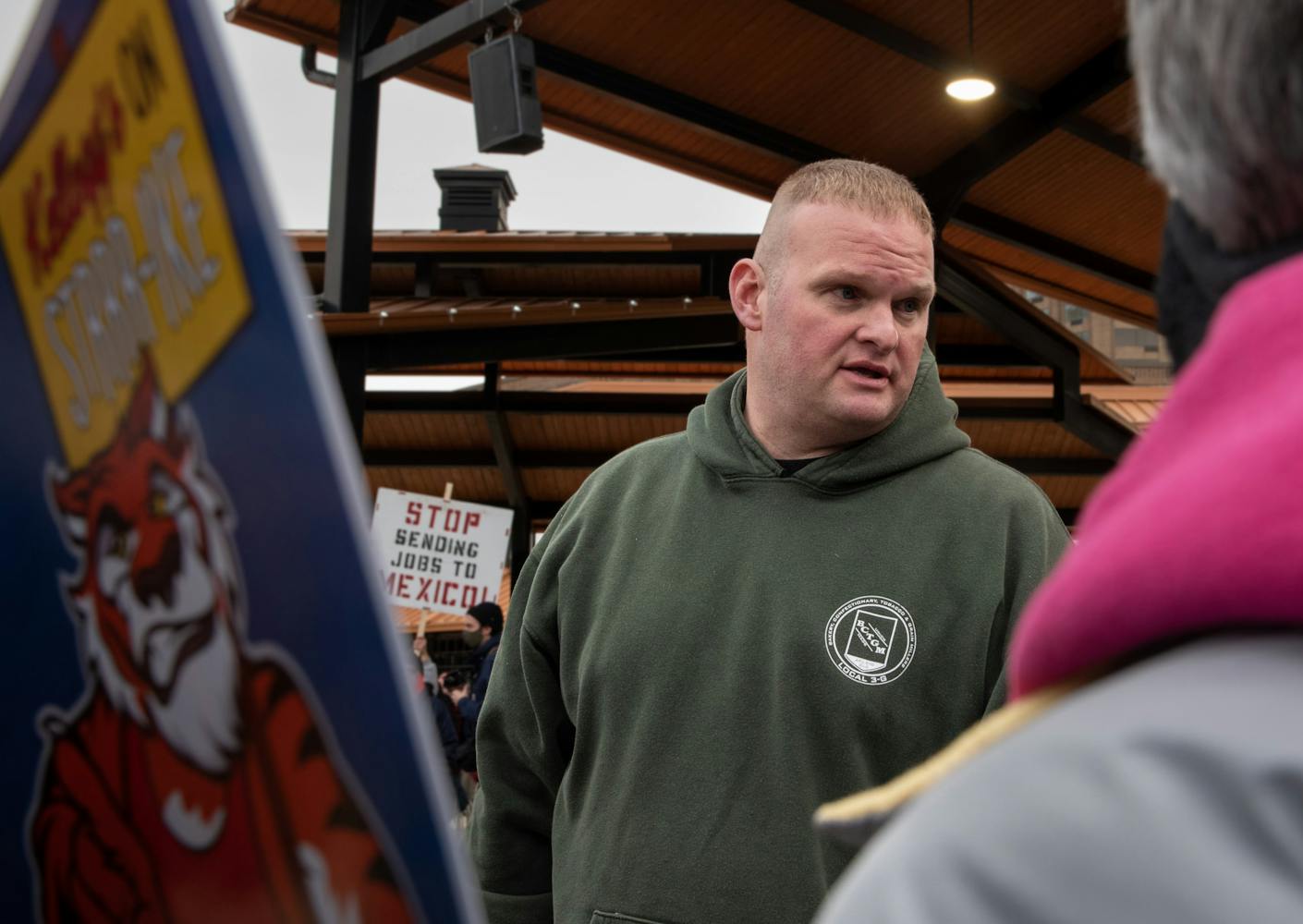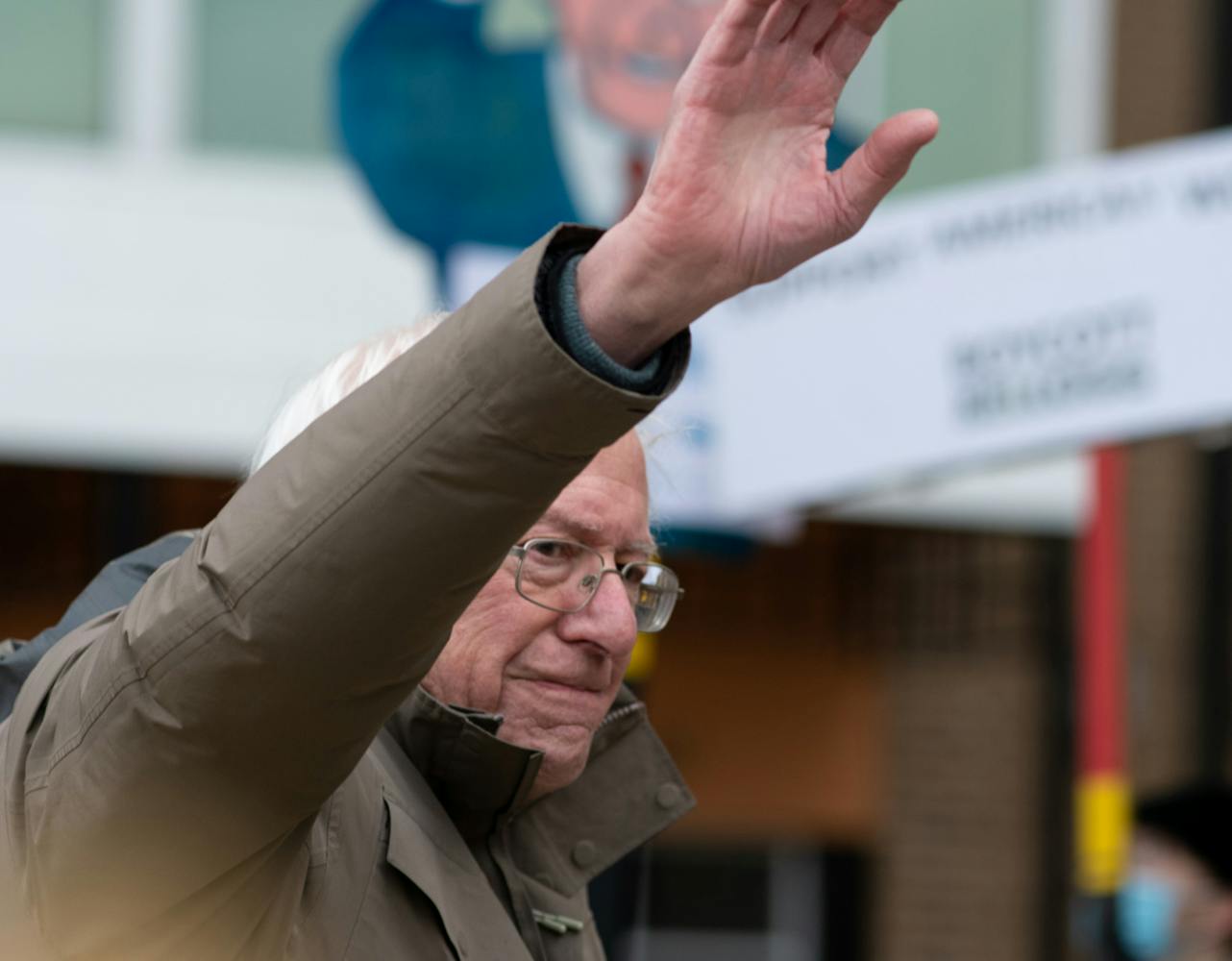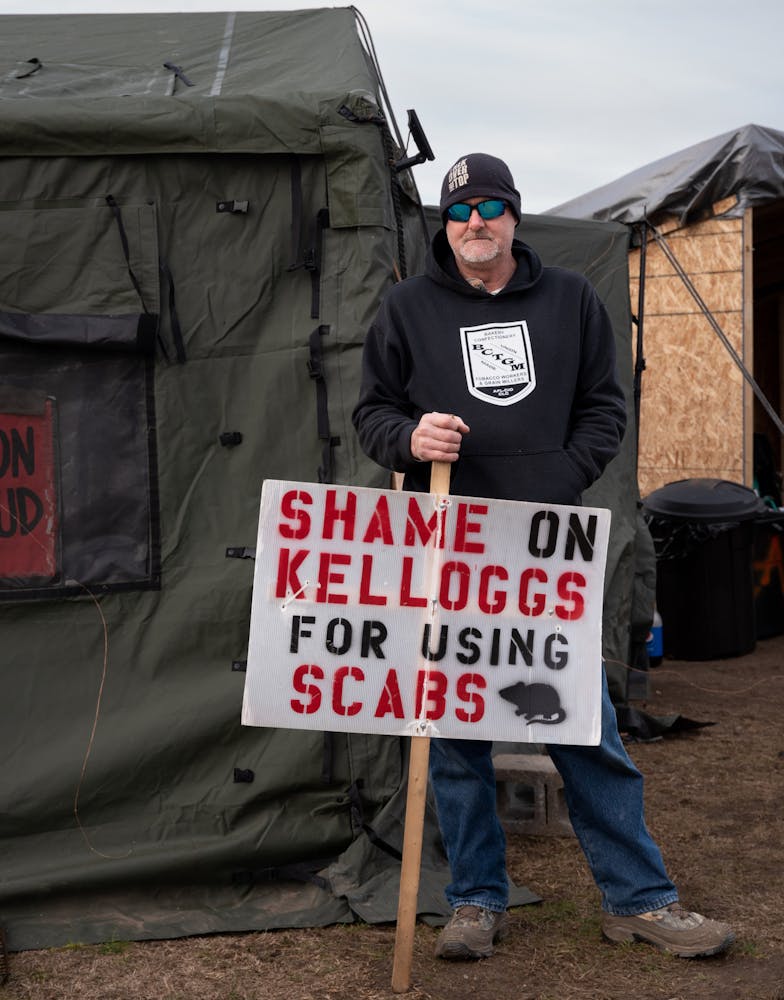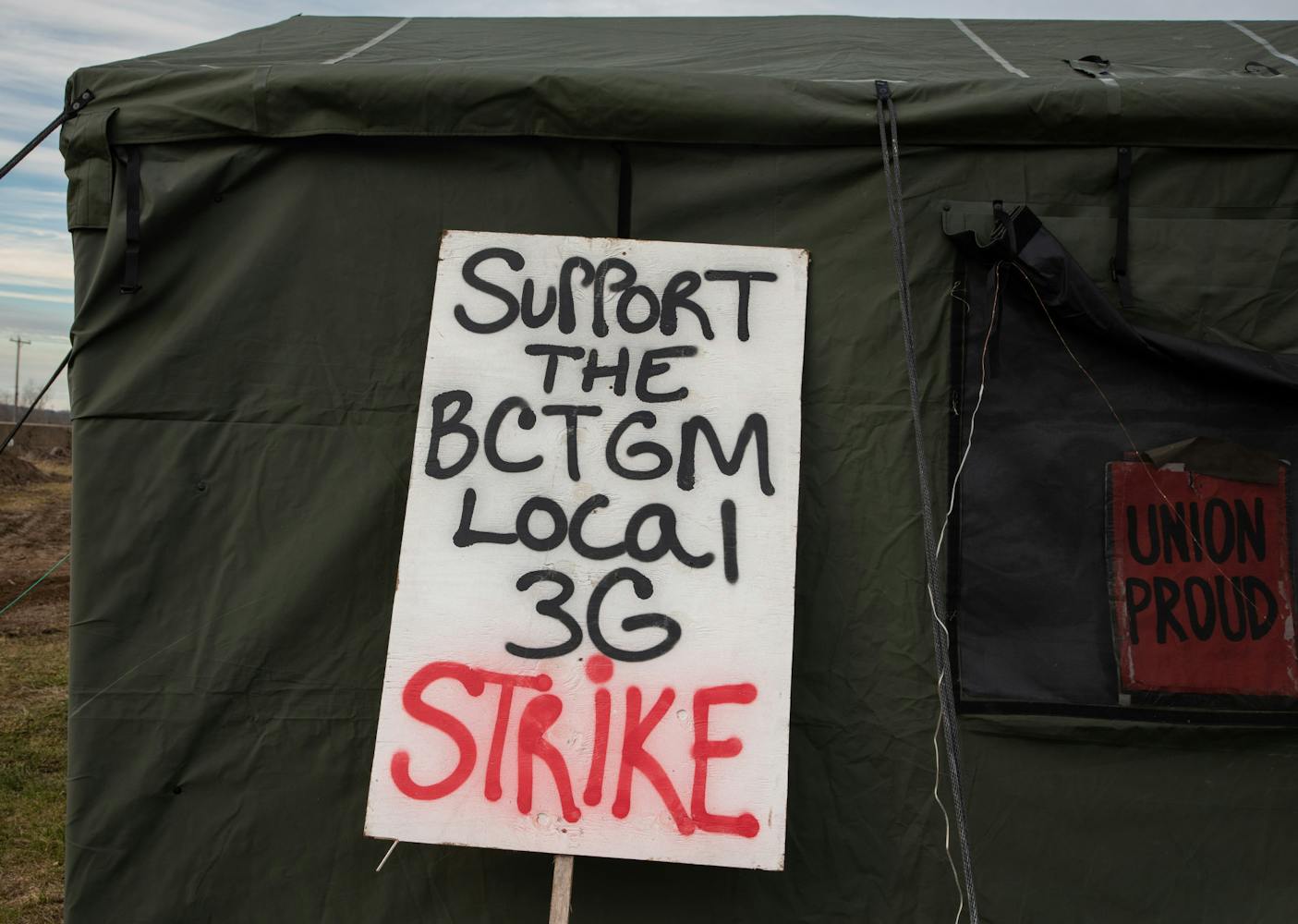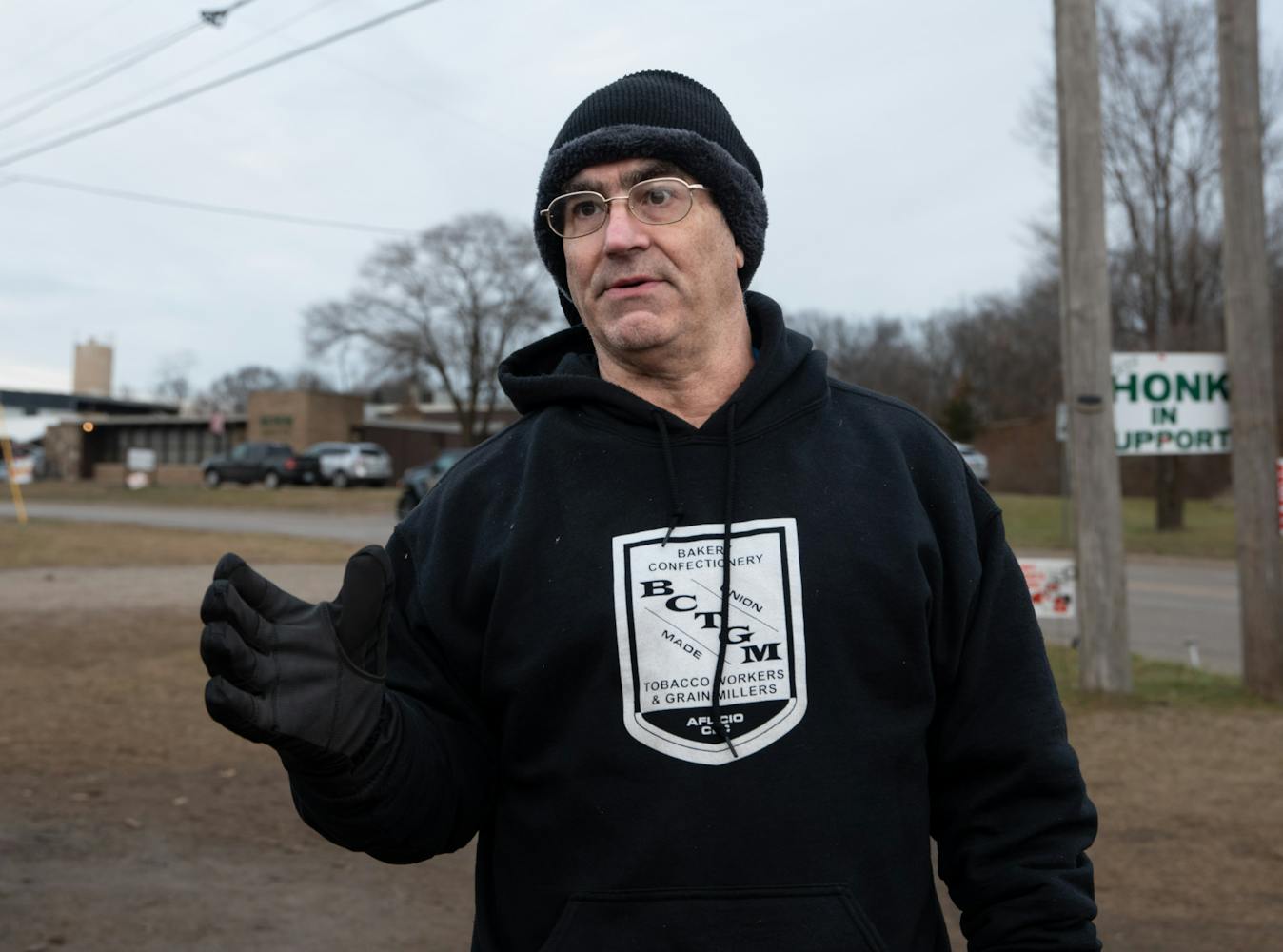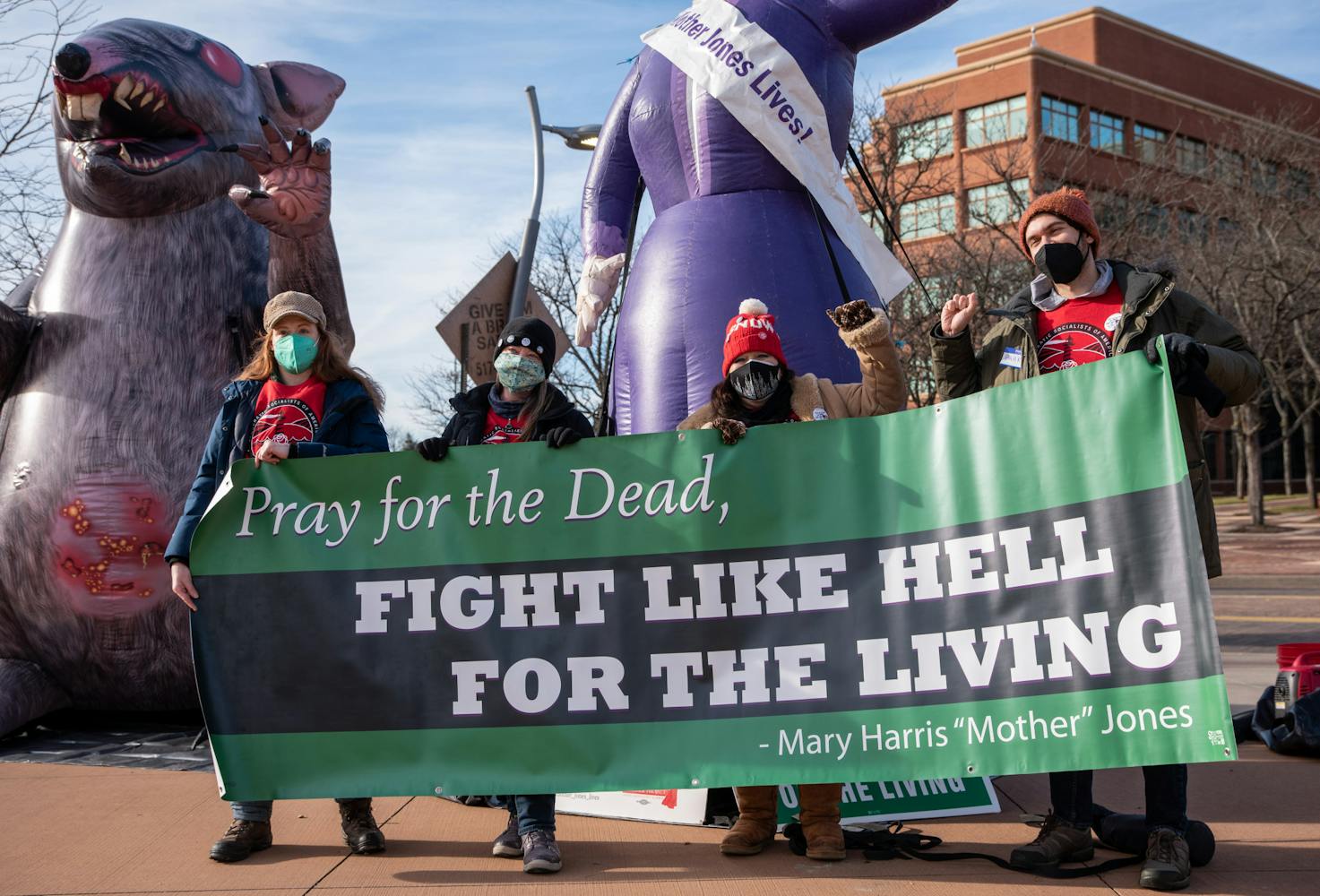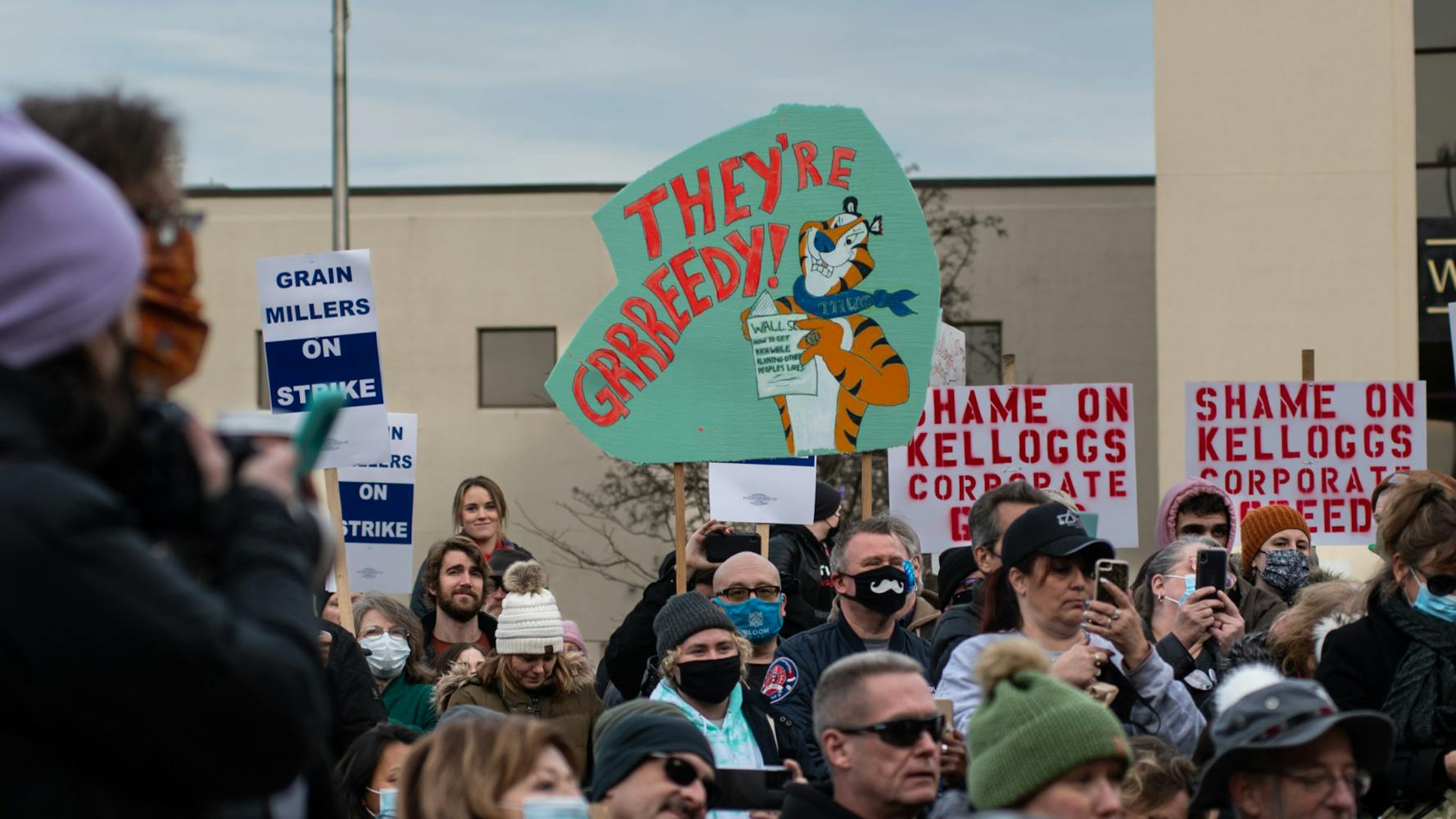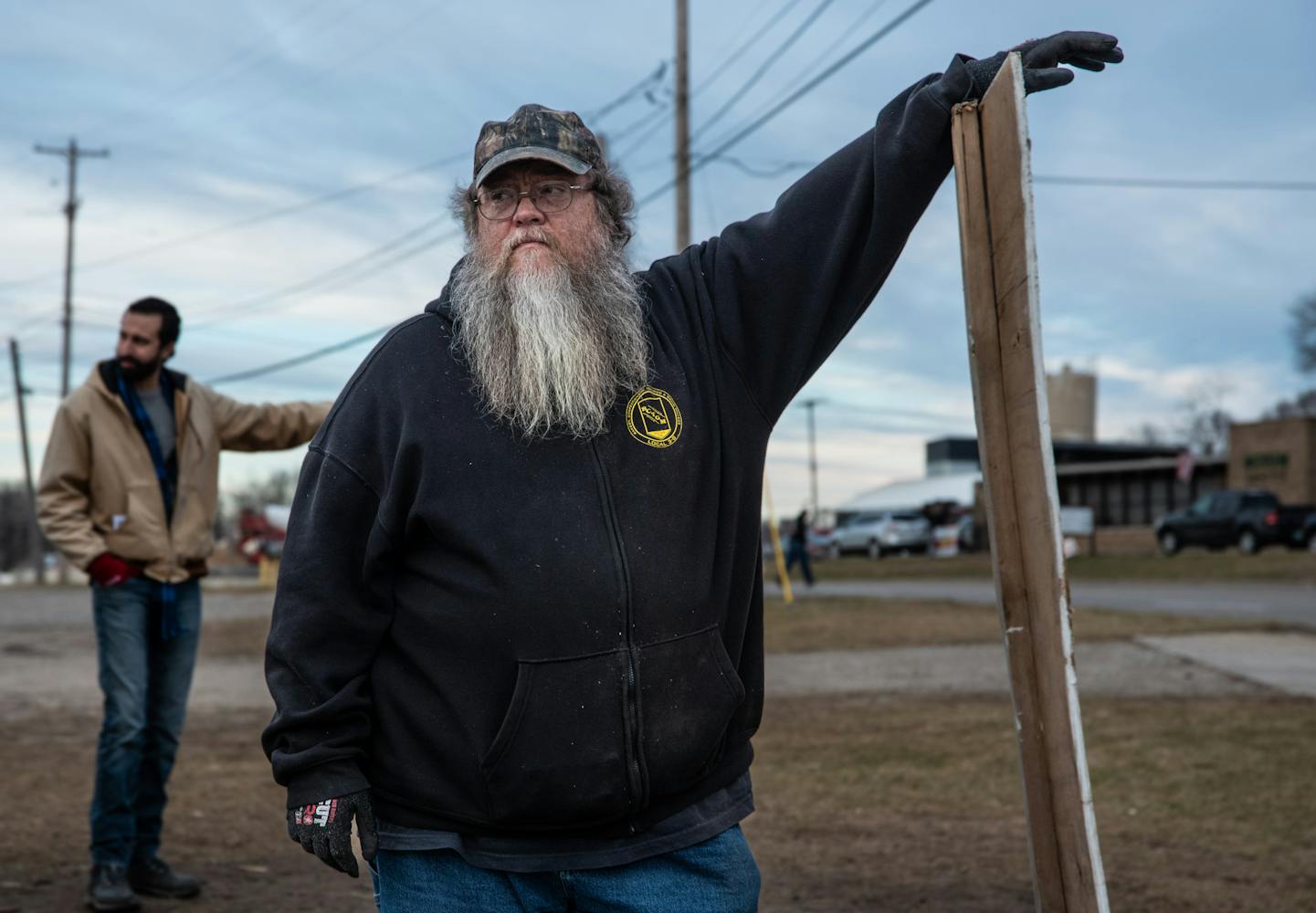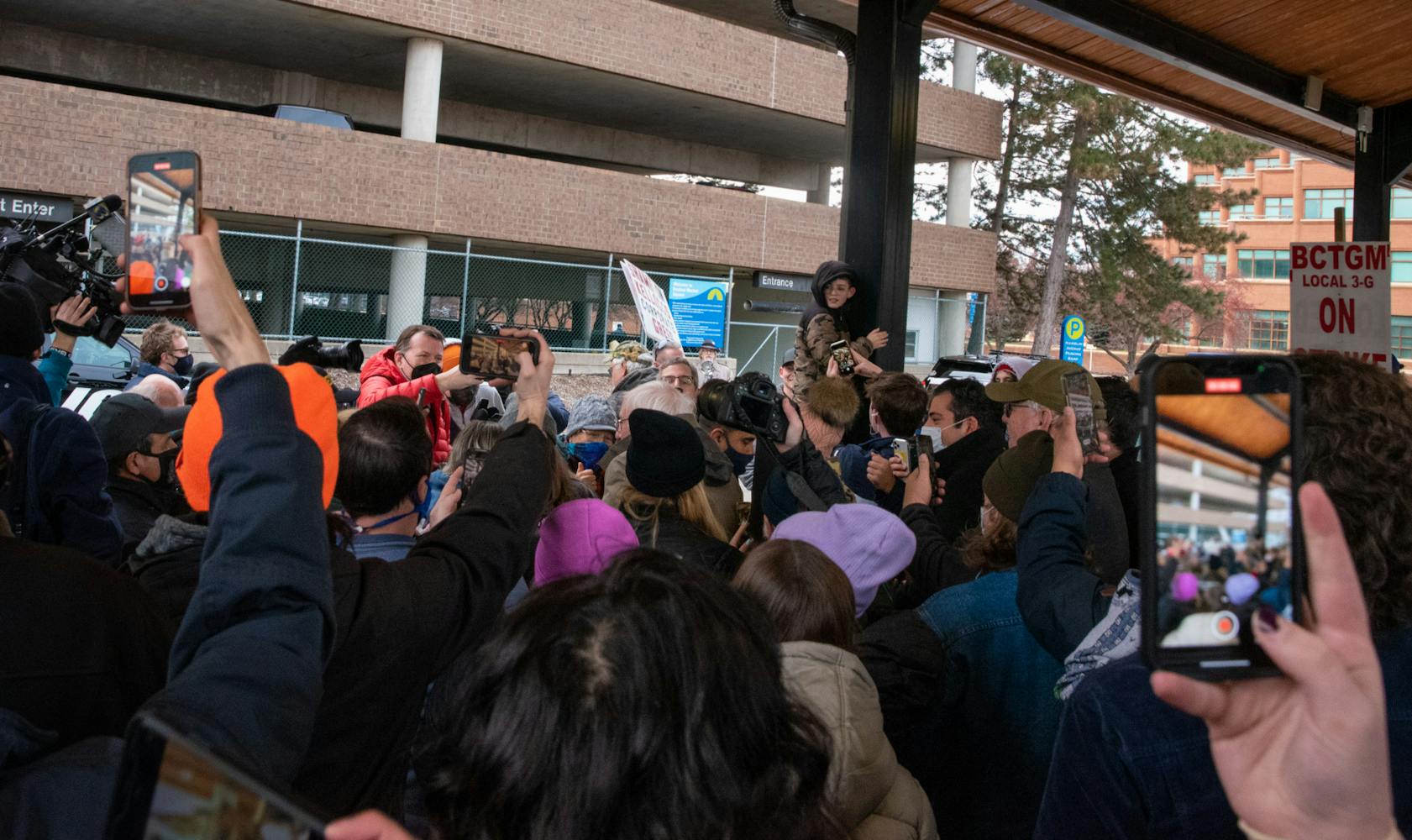On Friday, Dec. 17, two-time presidential candidate and Sen. Bernie Sanders (I-VT) traveled to Battle Creek, Michigan to rally support for striking workers at the cereal giant, Kellogg Co.
Workers at four different Kellogg cereal plants have been on strike since midnight on Oct. 5. Sanders’ rally took place in their 11th week, ironically right outside Kellogg Arena.
“I’m standing here today, because you have had the incredible courage right here to take on corporate greed,” Sanders said during his speech to strikers and their supporters. “All over this country, working people are looking at you, and they’re saying thank you for your courage.”
“Corporate greed is about CEOs who make $12 million a year and then have a two-tier system, which lowers wages for incoming workers,” Sanders continued, referencing the Kellogg Co. CEO Steve Cahillane who reportedly made over $11 million in 2020, which is 279 times more than the median pay of a Kellogg employee.
Sanders not only brought his own support but also read a letter on behalf of President Joe Biden. In the letter, Biden expressed support for the collective bargaining process and the strikers.
The rally was held only a day after the cereal giant announced it had reached a tentative agreement with the Bakery, Confectionery, Tobacco Workers, and Grain Millers International Union, or BCTGM, the union that represents the Kellogg plant workers.
This is the second tentative agreement that has been reached between the bargaining team and company executives. The first tentative agreement was voted down.
Many members of the union indicated they planned to vote down the agreement, saying it did not do enough to get rid of the company's two-tier worker system.
Jack Atkinson is a Kellogg worker and BCTGM member and said he has heard the newly proposed contract is essentially the same contract just with different wording.
“They’re not willing to budge," Atkinson said. "They don’t want to negotiate which is what they’re supposed to be doing. They just want to go in there, slam their proposals down and say, ‘Take it or leave it,’" Atkinson said.
During a speech before Sanders spoke, Union President Trevor Bidelman told the crowd that the new contract was going to harm the workers in the future because it would keep the two-tier system of workers.
“It’s a trojan horse that’s been given to us,” Bidelman said. “It’s going to allow us to basically harm ourselves down the road, OK? ... What the company is going to do is they’re going to fill these facilities with these workers that we were essentially fighting to get rid of the classification all together.”
The two-tier system is central to the union’s demands for a new contract. The union is hoping to see the system get taken down, so the lower-tiered members can start seeing better pay and benefits. Many of the workers said ending the strike before making major headway on getting rid of that system would be pointless.
The system separates the workers hired prior to 2015 and after 2015 into “legacy” and “transitional” workers. The legacy workers received pay, benefits and contribution to retirement, while the transitional workers do not receive benefits or retirement benefits.
Many of the workers also work long hours, pulling 12-to-16 hour shifts that tire them out and give them very little time to do anything but drive home, eat and sleep before they must wake up and go to work again.
Some workers talked of working up 50 days in a row without having a day off. Two striking workers, Anthony Kerns and Donny Deeren, talked of days where they had fallen asleep on their commute home after a shift.
Many of the workers talked of missing out on important life events because Kellogg was having them work. Deeren said that he has missed out on holidays, family time and kids’ events.
Support student media!
Please consider donating to The State News and help fund the future of journalism.
“We missed out even on funerals," Deeren saiad. "You name it, you either missed out on it or you take points and risk getting in trouble that way."
After the first tentative agreement that was reached by the bargaining team and the company was voted down by membership, Kellogg Co. started to bring in strikebreakers, or "scabs," to work in the vacant plants.
Since bringing in replacement workers, the plants have had issues with fires breaking out and fights started between the new workers. Deeren and Kerns said that they have heard despite Kellogg bringing in strikebreakers, nobody is available to train the workers because all the people who could train are now on strike.
“They think they can pull you out, put somebody else in and it’s not going to make any difference,” Kerns said. “Well, we found out it does make a difference.”
Discussion
Share and discuss “Sen. Bernie Sanders lends support to striking Kellogg workers in Battle Creek” on social media.
